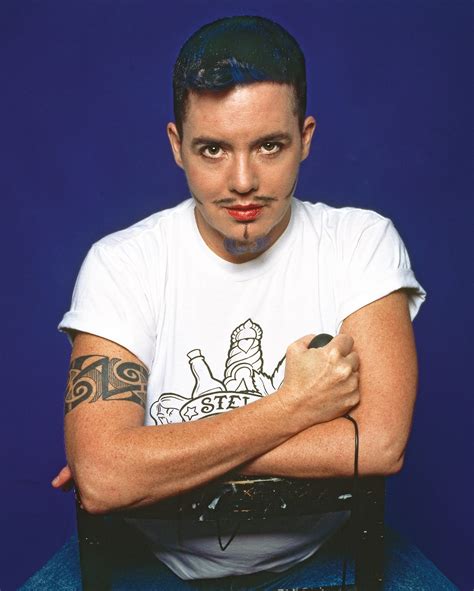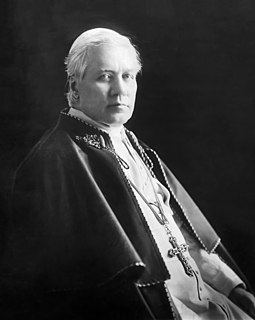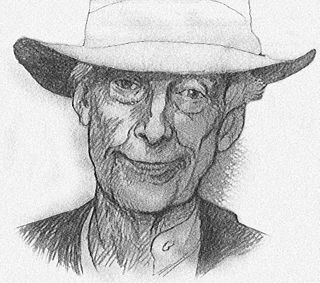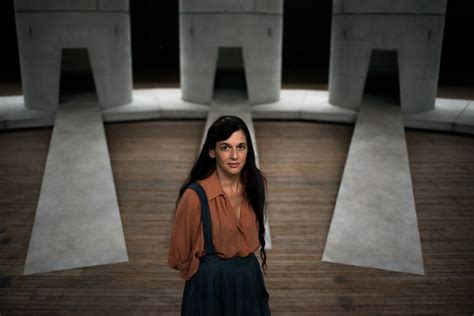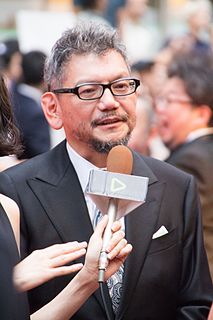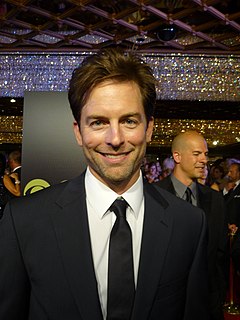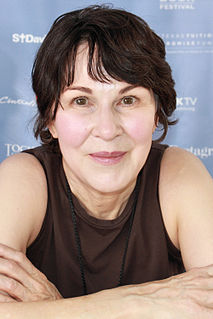Top 276 Ambiguous Quotes & Sayings - Page 5
Explore popular Ambiguous quotes.
Last updated on April 16, 2025.
The woman who fights against her father still has the possibility of leading an instinctive, feminine existence, because she rejects only what is alien to her. But when she fights against the mother she may, at the risk of injury to her instincts, attain to greater consciousness, because in repudiating the mother she repudiates all that is obscure, instinctive, ambiguous, and unconscious in her own nature.
The marriage of reason and nightmare which has dominated the 20th century has given birth to an ever more ambiguous world. Across the communications landscape move the specters of sinister technologies and the dreams that money can buy. Thermonuclear weapons systems and soft drink commercials coexist in an overlit realm ruled by advertising and pseudoevents, science and pornography. Over our lives preside the great twin leitmotifs of the 20th century-sex and paranoia.
The American citizen lives in a world where fantasy is more real than reality, where the image has more dignity than its original. We hardly dare face our bewilderment, because our ambiguous experience is so pleasantly irridescent, and the solace of belief in contrived reality is so thoroughly real. We have become eager accessories to the great hoaxes of the age. These are the hoaxes we play on ourselves.
Since social relationships are always ambiguous, since my thought is only a unit, since my thoughts create rifts as much as they unite, since my words establish contacts by being spoken and create isolation by remaining unspoken, since an immense moat separates the subjective certitude that I have for myself from the objective reality that I represent to others, since I never stop finding myself guilty even though I feel I am innocent.
The hope that fuels the pursuit of endless economic growth - that billions of consumers in India & China will one day enjoy the lifestyles of Europeans and Americans - is as absurd & dangerous a fantasy as anything dreamt up by Al-Qaeda. It condemns the global environment to early destruction & looks set to create reservoirs of nihilistic rage & disappointment among hundreds of millions of have-nots - the bitter outcome of the universal triumph of Western Modernity, which turns the revenge of the East into something darkly ambiguous, and all its victories truly Pyrrhic.
Virtually every major technological advance in the history of the human species- back to the invention of stone tools and the domestication of fire has been ethically ambiguous. If you want to reason about faith, and offer a reasoned (and reason responsive) defense of faith as an extra category of belief worthy of special consideration, I'm eager to play. I certainly grant the existence of the phenomenon of faith; what I want to see is a reasoned ground for taking faith seriously as a way of getting to the truth , and not, say, just as a way people comfort themselves and each other
What drivel it all is!... A string of words called religion. Another string of words called philosophy. Half a dozen other stringscalled political ideals. And all the words either ambiguous or meaningless. And people getting so excited about them they'll murder their neighbours for using a word they don't happen to like. A word that probably doesn't mean as much as a good belch. Just a noise without even the excuse of gas on the stomach.
I came from a tradition where souls were a theological reality, not a faith reality. Souls were for saving, not for communing. Souls were for converting and, once they were converted, they were to be left alone. Souls were too mystical, too subjective, too ambiguous, too risky, too... well, you know - New Age-ish.
Zen is to religion what a Japanese "rock garden" is to a garden. Zen knows no god, no afterlife, no good and no evil, as the rock-garden knows no flowers, herbs or shrubs. It has no doctrine or holy writ: its teaching is transmitted mainly in the form of parables as ambiguous as the pebbles in the rock-garden which symbolise now a mountain, now a fleeting tiger. When a disciple asks "What is Zen?", the master's traditional answer is "Three pounds of flax" or "A decaying noodle" or "A toilet stick" or a whack on the pupil's head.
It opposes the dogmatic application to all cases of what is adequate only for piecemeal aggregates. The question is whether an approach in piecemeal terms, through blind connections, is or is not adequate to interpret actual thought processes and the role of the past experience as well. Past experience has to be considered thoroughly, but it is ambiguous in itself; so long as it is taken in piecemeal, blind terms it is not the magic key to solve all problems.
When I was a TV director working on Judd Apatow's show Undeclared. I was surrounded by so many young people. People like Seth Rogen, who was 9 years old or something. It was just a ridiculous amount of talented young people. I started to think I'd like to see a young-love movie, but not one done in that glossy, Hollywood, high-concept manner we've become accustomed to. One that was, for lack of a better way of putting it, a little more ambiguous, '70s-style, where everyone was flawed, middle-class characters.
It is great good health to believe as the Hindus do that there are 33 million gods and goddesses in the world. It is great good health to want to understand one s dreams. It is great good health to desire the ambiguous and paradoxical. It is sickness of the profoundest kind to believe that there is one reality. There is sickness in any piece of work or any piece of art seriously attempting to suggest that the idea that there is more than one reality is somehow redundant.
The material which a scientist actually has at his disposal, his laws, his experimental results, his mathematical techniques, his epistemological prejudices, his attitude towards the absurd consequences of the theories which he accepts, is indeterminate in many ways, ambiguous, and never fully separated from the historical background . This material is always contaminated by principles which he does not know and which, if known, would be extremely hard to test.
By the time the average person finishes college, he or she will have taken over 2,600 tests, quizzes, and exams. The right answer approach becomes deeply ingrained in our thinking. This may be fine for some mathematical problems where there is in fact only one right answer. The difficulty is that most of life isn’t this way. Life is ambiguous; there are many right answers- all depending on what you’re looking for. But if you think there is only one right answer, then you’ll stop looking as soon as you find one.
As a gender variant visual artist I access 'technologies of gender' in order to amplify rather than erase the hermaphroditic traces of my body. I name myself. A gender abolitionist. A part time gender terrorist. An intentional mutation and intersex by design, (as opposed to diagnosis), in order to distinguish my journey from the thousands of intersex individuals who have had their 'ambiguous' bodies mutilated and disfigured in a misguided attempt at 'normalization'. I believe in crossing the line as many times as it takes to build a bridge we can all walk across.
There was one woman who had a giant sign and on it, it just said, 'America Is Better Than Abortion.' I think she meant that America was too good a place for the horror of abortion. But instead, it sounded like she had weighed both - the American spirit and getting an abortion and decided that American spirit better. I think it is a bad idea to have grammatically ambiguous protest signs.
Our Apostolic Mandate requires from Us that We watch over the purity of the Faith and the integrity of Catholic discipline. It requires from Us that We protect the faithful from evil and error; especially so when evil and error are presented in dynamic language which, concealing vague notions and ambiguous expressions with emotional and high-sounding words, is likely to set ablaze the hearts of men in pursuit of ideals which, whilst attractive, are nonetheless nefarious.
Post-Modern space is historically specific, rooted in conventions, unlimited or ambiguous in zoning and irrational or transformational in its relation of parts to whole……. …skew or distorted spaces, created by sharp angles which exaggerate perspective…. …always keep a mental coordinate system no matter how free- form and baroque they become. The reference plane is always an implied frontality, and the route through the building or the curvilinear elements then relate to this conceptual cage
I didn't have a perfect model, but I wanted to try to blend my own personal reflections and experiences with this broader canvas to see how a lot of the narratives we have about economy and foreign policy got stuck. Because we have these categories of liberal, conservative, free marketer, open government - all these stereotypes about our politics and the categories we try to put things in are inadequate to this sort of complex, ambiguous, sometimes contradictory experience we have as ordinary people and that I have as an elected official.
Documentary photography is becoming more illustrative as people become more familiar with photography’s limitations and vulnerabilities. Reality has always been interpreted through layers of manipulation, abstraction, and intervention. But now, it is very much on the surface. I like this honesty about its dishonesty. Every photograph has many truths and none. Photographs are ambiguous, no matter how seemingly scientific they appear to be. They are always subject to an uncontrollable context. This is a tired statement, but worth repeating.
There was a wall. It did not look important. It was built of uncut rocks roughly mortared. An adult could look right over it, and even a child could climb it. Where it crossed the roadway, instead of having a gate it degenerated into mere geometry, a line, an idea of boundary. But the idea was real. It was important. For seven generations there had been nothing in the world more important than that wall. Like all walls it was ambiguous, two-faced. What was inside it and what was outside it depended upon which side of it you were on.
Wave particle duality is a core feature of our world. Or rather, we should say, it is a core feature of our mathematical descriptions of our world. But what is critical to note here is that, however ambiguous our images, the universe itself remains whole and is manifestly not fracturing into schizophrenic shards. It is this tantalizing wholeness and the thing itself that drives physicists onward like an eternally beckoning light that seems so teasingly near. It is always out of reach.
The difference between ignorant and educated people is that the latter know more facts. But that has nothing to do with whether they are stupid or intelligent. The difference between stupid and intelligent people-and this is true whether or not they are well-educated-is that intelligent people can handle subtlety. They are not baffled by ambiguous or even contradictory situations-in fact, they expect them and are apt to become suspicious when things seem overly straightforward.
Eva is a story of repetition. It is a story where our protagonist faces the same situation many times over and determinedly picks himself back up again. It is a story of the will to move forward, even if only a little. It is a story of the resolve to want to be together, even though it is frightening to have contact with others and endure ambiguous loneliness. I would be most gratified if you found enjoyment in these four parts as it takes the same story and metamorphoses it into something different.
I feel with some passion that what we truly are is private, and almost infinitely complex, and ambiguous, and both external and internal, and double- or triple- or multiply natured, and largely mysterious even to ourselves; and furthermore that what we are is only part of us, because identity, unlike "identity", must include what we do. And I think that to find oneself and every aspect of this complexity reduced in the public mind to one property that apparently subsumes all the rest ("gay", "black", "Muslim", whatever) is to be the victim of a piece of extraordinary intellectual vulgarity.
What if [Saddam] fails to comply and we fail to act, or we take some ambiguous third route, which gives him yet more opportunities to develop this program of weapons of mass destruction? ... Well, he will conclude that the international community has lost its will. He will then conclude that he can go right on and do more to rebuild an arsenal of devastating destruction. And some day, some way, I guarantee you he'll use the arsenal.
I never think in terms of alienation; it's the others who do. Alienation means one thing to Hegel, another to Marx and yet another to Freud; so it is not possible to give a single definition, one that will exhaust the subject. It is a question bordering on philosophy, and I'm not a philosopher nor a sociologist. My business is to tell stories, to narrate with images - nothing else. If I do make films about alienation - to use that word that is so ambiguous - they are about characters, not about me.
Human courtship has some wild extremes. At one end of the spectrum, there is harassment, pestering, blackmail, and an abuse of institutional power, which its targets rightly fear and loathe. At the other end is love, which as Nietzsche said, is beyond good and evil and always deserves our respect and compassion even when it is doomed or destructive. In the wide middle of the spectrum are all the ambiguous and tragi-comic goings-on of our species.
The first principle, when you don't know anything about the subject of a thesis, is to let the candidate talk, nodding now and then with an ambiguous smile. He thinks you know, and are counting his mistakes, and it unnerves him... the second principle of conducting an oral, ... is to pretend ignorance, and ask for explanations of very simple points. Of course your ignorance is real, but the examinee thinks you are being subtle, and that he is making an ass of himself, and this rattles him.
I want each poem to be ambiguous enough that its meaning can shift, depending on the reader's own frame of reference, and depending on the reader's mood. That's why negative capability matters; if the poet stops short of fully controlling each poem's meaning, the reader can make the poem his or her own.
A map in the hands of a pilot is a testimony of a man's faith in other men; it is a symbol of confidence and trust. It is not like a printed page that bears mere words, ambiguous and artful, and whose most believing reader - even whose author, perhaps - must allow in his mind a recess for doubt. A map says to you, 'Read me carefully, follow me closely, doubt me not.' It says, 'I am the earth in the palm of your hand. Without me, you are alone and lost.
I think that maybe happy families don't need stories the way unhappy families need stories. Maybe they're too busy living that they don't actually step back and talk about life like the Anton Chekhov quote. I prefer Anton Chekhov to Lev Tolstoy, and the reason is because of what he leaves out. Sometimes I think Tolstoy had a theory that he was proving and he proved it. Chekhov is more ambiguous.
The reinvention of American culture as purely the self catapulted Las Vegas to prominence. The city took sin and made it choice -- a sometimes ambiguous choice, but choice nonetheless. Combined with a visionary approach to experience that melded Hollywood and Americans' taste for comfort and self-deception, Las Vegas grew into the last American frontier city, as foreign at times as Prague but as quintessential as Peoria. In Las Vegas, you can choose your fantasy; in the rest of America, you don't always get to pick.
When my sons arrived in the family, their legal status was not ambiguous at all. They were our kids. But their wants and affections were still atrophied by a year in the orphanage. They didn't know that flies on their faces were bad. They didn't know that a strange man feeding them their first scary gulps of solid food wasn't a torturer. Life in the cribs alone must have seemed to them like freedom. That's what I was missing about the biblical doctrine of adoption. Sure it's glorious in the long run. But it sure seems like hell in the short run.
This word "redemption," what is it about this word? Is it tangible? Do you know when it has happened? Is it necessary in a drama? Does it make a character boring? Does everyone agree on a character being "redeemed?" Or is it a word that is so subjective and polarizing and insignificant in modern television? It is a word that has been given, quite possibly, far too much significance, when it is truly ambiguous and meaningless in a drama. I have personally grown to loathe that word in literature.
Bertrand Russell said, 'Electricity is not a thing like St. Paul's Cathedral; it is a way in which things behave.' And it's not 'they' who say, but Walter Benjamin who said, 'Things are only mannequins and even the great world-historical events are only costumes beneath which they exchange glances with nothingness, with the base and the banal.' In September, 1940, Benjamin died under ambiguous circumstances in the French-Spanish border town of Portbou, while attempting to flee the Nazis.














